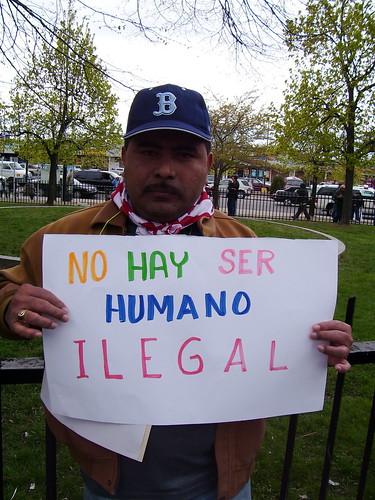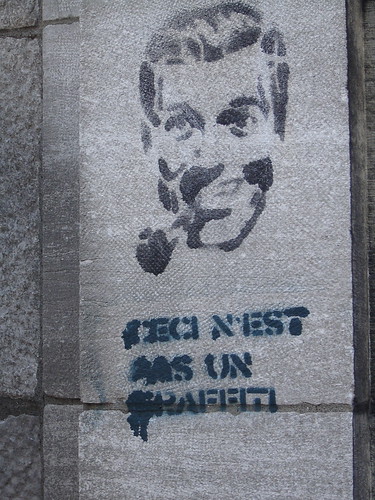OK. Now for the other list. I've got a little bit different format for this one this year. All of the books list were published, either in paperback or hardcover, in 2007. Now, obviously all of the books I read this year weren't published this year, and I've always been a little annoyed about not being able to put the books I really liked from the year before on the list just because I didn't get around to reading them right away (Millennial Monsters by Anne Allison and Hip-Hop Japan by Ian Condry are two good example from 2006). So this list will have my favorite six non-fiction books, followed by the ever popular top four coffee table books, followed by the top seven books I'm looking forward to reading, but haven't yet. So here it is, the top seventeen of 2007.
The Best Non Fiction of 2007!!!
#1: The Warhol Economy: How Fashion, Art and Music Drive New York City by Elizabeth Currid.So #1 is a planning book, in what seemed like a pretty weak year for planning books. Currid's research takes up some of the important questions that were left in Richard Florida's Creative Class work, but on a more sociological level, rather then macro-economic. It also relates to Lloyd's NeoBohemia, but more from a public policy standpoint. The book is basically about the economic benifits of the arts in the urban economy.
#2: Parallel Paths: The Development of Nationalism in Ireland and Quebec by Garth Stevenson.Parallel Paths traces the development of modern Québécois and Irish nationalism in overlapping chapters that seek to explain why Ireland became independant while Québec has remained withing the Canadian federation. It's one of the most readible histories of Québec I've ever read (and I've read a freaking lot of histories of Québec) with the bonus of some great Irish history mixed in. It was published in Canada so it's a little tough to find, but very worth it.
#3: No One is Illegal: Fighting Violence and State Repression on the US-Mexico Border by Mike Davis and Justin Akers Chacón.This was one of Mike Davis' three books this year. He's awesome. This one has a really great history of immigration in the US with a focus on the way that business interests benifit by keeping labor divided into legal and illegal groups who are constantly at odds with each other. The second half focuses on the tiny vigilante groups like the Minutemen and how they manage to dominate so much of the media discourse surrounding the immigration debate.
#4: The Story of French by Jean-Benoit Nadeau and Julie Barlow.These two Québecois writers take on the the history of the French language. This was the Governor-General's Prize winner for non-fiction this year. It's very accessible, even if you aren't a Francophone. And if you are a Francophone there is a lot of interesting little tidbits about the origins of some of your favorite words: for example, poutine comes from the english word pudding.
#5: Evil Paradises: Dreamworlds of Neoliberalism edited by Mike Davis and Daniel Bertrand Monk.Here's the second Mike Davis book of the batch. This one is a serious of academic papers regarding the role of neoliberal economics on urban form, from the megamalls of Dubai to little California suburbs in the deserts of Iran. Since there are a lot of different authors, the chapters very pretty widly in topic and quality, but there is a little bit of something for everyone (or at least everyone who is into history, urban planning, architecture or sociology).
#6: The Suburbanization of New York edited by Jerilou Hammett, Kingsley Hammett and Martha Cooper.Book 6 is another planning anthology. A lot of it relates to the losses of ethnic, social and economic diversity NYC and the proliferation of suburbanesqe chains. It's a pretty interesting way to look at the booms of inner-city gentrification around the country. In the end it begins to ask the question: If urban life becomes the new American dream, does that mean that there must simply be a reversal of the former status quo (ie richer and whiter in the center, poorer and darker on the periphery) or does the move to reurbanization also have possibilities for unification across class and color lines.
The Best Coffee Table Books of 2007!!! #1: Transit Maps of the World by Mark Ovenden and Mike Ashworth.A collection of every urban transit map in the world? Hell, yeah. The book also nicely outlines the evolution of the design of these important maps throughout time. Did you know Montréal is one of the only cities in the world with a black background on it's transit maps?
#2: Design Like You Give a Damn by Architecture for Humanity.A very cool book with tons of architectural projects all over the world, from Darfur to New Orleans. The architecture is amazing and the social relevance is great. It's a wonderful organization and a great book.
#3: Imagining MIT by William J. Mitchell.My Boston pick for the year, this goes over the evolution of MIT's campus focusing on the recent spate of building, including Gehry's Stata Center, Kevin Roche's Zesiger Sports and Fitness Center, Steven Holl's Simmons Hall, Charles Correa's Brain and Cognitive Science Complex, and Fumihiko Maki's Media Laboratory. Lots of very cool architecture in good photographs.
#4: Robert Moses and the Modern City edited by Hillary Ballon and Kenneth T. Jackson.This book grew out of several different museum exhibits around New York last year. For anyone who doesn't know, Robert Moses is the person who is probably most resposible for New York's urban form, for better and worse. In fact, there are probably few people in American history who are as responisible for a city (save maybe for Alan Jacobs in San Francisco and L'Enfant in DC). It's a great book.
The Best(?) Books I Haven't Read Yet of 2007!!!#1:
greenTOpia: Towards a Sustainable Toronto edited by Alana Wilcox, Christina Palassio and Jonny Dovercourt#2:
Lagos: How It Works by Rem Koolhaas#3:
Diamonds, Gold and War: The British, the Boers, and the Making of South Africa by Martin Meredith#4:
Fidel Castro: My Life: A Spoken Autobiography by Ignacio Ramonet and Fidel Castro#5:
India After Gandhi: The History of the World's Largest Democracy by Ramachandra Guha#6:
Zhou Enlai: The Last Perfect Revolutionary by Gao Wenquin
Read more...






















